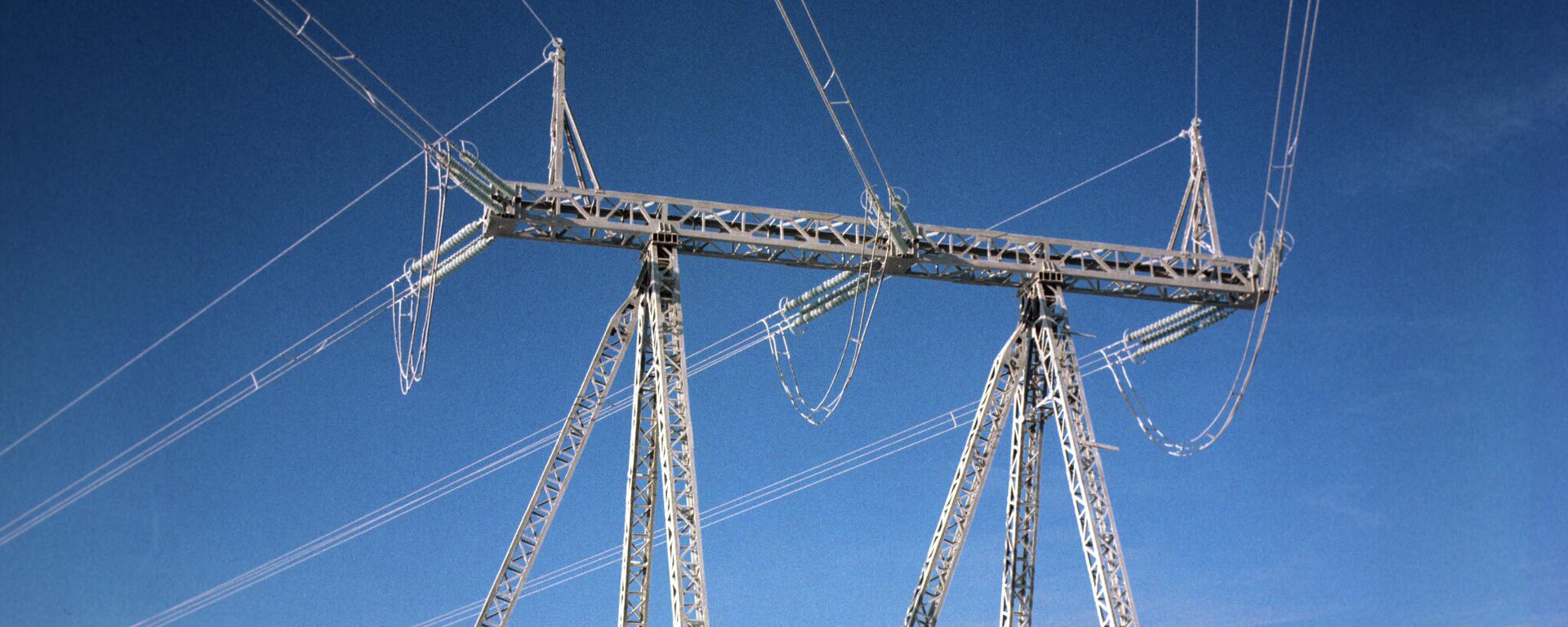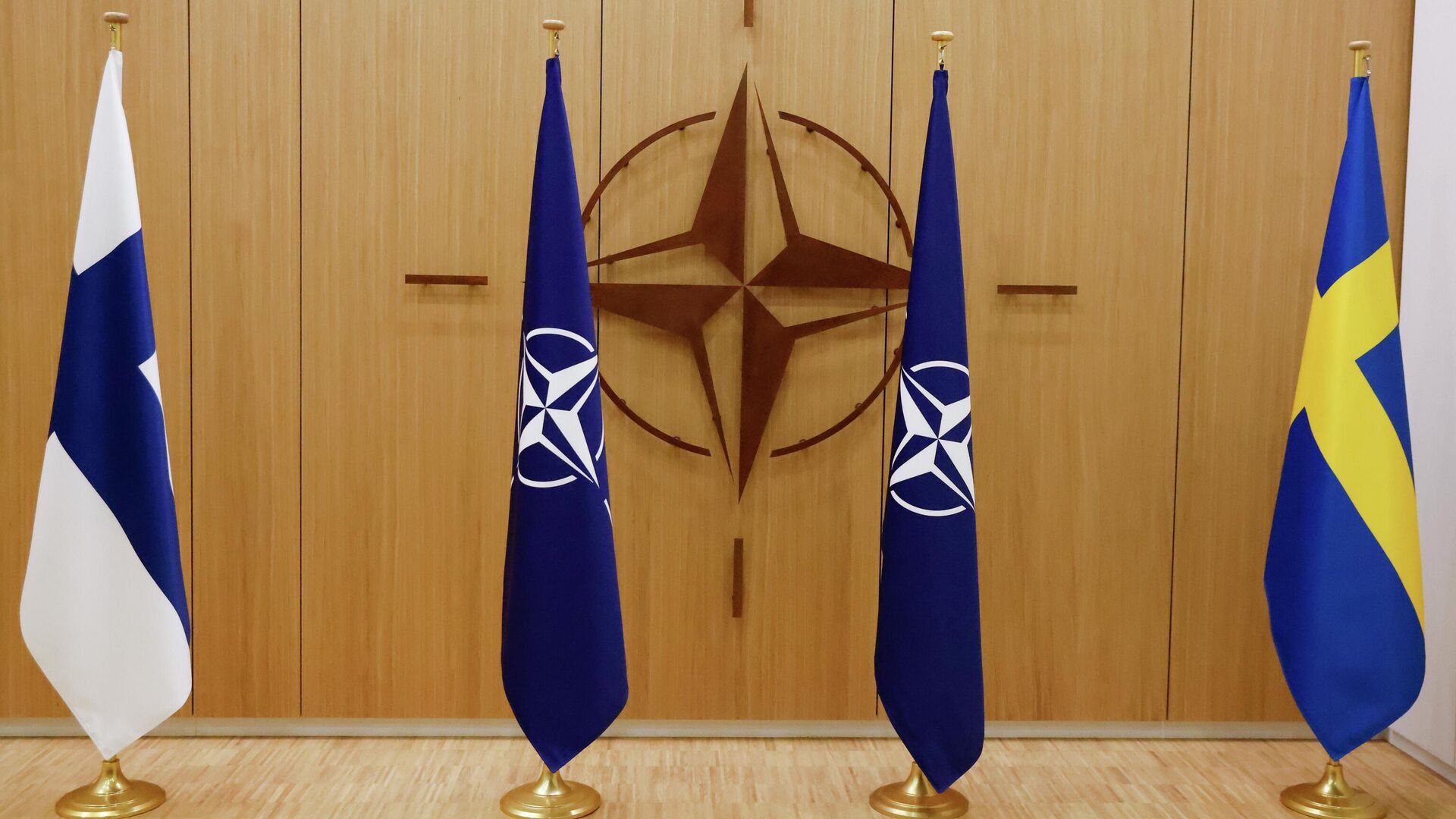https://sputnikglobe.com/20220915/nato-membership-may-harm-swedens-exports-professor-warns-1100796120.html
NATO Membership May Harm Sweden's Exports, Professor Warns
NATO Membership May Harm Sweden's Exports, Professor Warns
Sputnik International
In the words of professor Per Högselius, Swedish industry has benefited from the country's image as a “small, harmless country” with good relations with... 15.09.2022, Sputnik International
2022-09-15T07:16+0000
2022-09-15T07:16+0000
2022-09-15T07:16+0000
economy
sweden
scandinavia
nato
nato expansion
finland
exports
https://cdn1.img.sputnikglobe.com/img/07e6/07/03/1096913658_0:160:3073:1888_1920x0_80_0_0_9d4b2918d90cff3a843246f5ea3e47f5.jpg
When Sweden ultimately joins NATO, many countries that previously imported from Sweden may consider supporting Swedish industry problematic. This, in turn, would mean significant losses for Swedish exports, the newspaper Dagens Industri reported.Per Högselius, a professor of history of technology at the Royal Institute of Technology (KTH) warned that membership in the US-led nuclear military alliance would mean a “big” change for Swedish exports.According to him, this image may change when Sweden becomes a NATO member, implying risks for the country's industry.Main Swedish exports include machinery and transport equipment, chemical and rubber products, food, clothing, textiles and furniture, and wood products. Sweden imports mainly machinery, petroleum and petroleum products, chemicals, motor vehicles, iron and steel.Sweden and neighboring Finland moved to apply for NATO membership in May following the escalation of the crisis in Russia-West relations over Moscow's special operation in Ukraine. In doing so, both Nordic nations effectively ditched their decades-old non-alignment policies, which had already been damaged by ballooning cooperation with NATO and the US, which included drills, overseas operations and intelligence sharing.Russia as Sweden's neighbor has expressed discontent with the western military bloc's expansion, warning Stockholm of repercussions. Among others, Russia vowed to respond if NATO military contingents were deployed in Sweden and Finland.“They should plainly and clearly realize that now, if military contingents and infrastructure are deployed there, we will have to respond in a mirror manner and create the same threats to the territories from which threats are created to us”, Vladimir Putin said.As of now, all of Sweden's major parties are in favour of NATO accession, with only the Greens maintaining principled opposition and the Left calling on a referendum on that matter. Given this, even the nascent shift of power following the ruling Social Democrats' loss in the recent general election and the rise of a right-wing coalition that may for the first time in history include the Sweden Democrats, won't change Stockholm's stance on the issue of NATO membership. The majority of Swedes also back NATO accession. An August poll by Kantar Sifo indicated that 58 percent supported this move.However, Sweden's economy is already suffering as a result of backfiring EU sanctions against Russia and ensuing energy and cost-of-living crises. The inflation rate in Sweden reached a record 9 percent in August, the highest in 30 years. Furthermore, the country's authorities have warned of possible power shortages this coming winter.
https://sputnikglobe.com/20220905/sweden-to-give-billions-to-electricity-companies-cut-power-usage-amid-looming-war-winter-1100373559.html
sweden
scandinavia
finland
Sputnik International
feedback@sputniknews.com
+74956456601
MIA „Rossiya Segodnya“
2022
News
en_EN
Sputnik International
feedback@sputniknews.com
+74956456601
MIA „Rossiya Segodnya“
Sputnik International
feedback@sputniknews.com
+74956456601
MIA „Rossiya Segodnya“
sweden, scandinavia, nato, nato expansion, finland, exports
sweden, scandinavia, nato, nato expansion, finland, exports
NATO Membership May Harm Sweden's Exports, Professor Warns
In the words of professor Per Högselius, Swedish industry has benefited from the country's image as a “small, harmless country” with good relations with others, which may change with NATO membership. Russia as Sweden's neighbor has expressed discontent with the western military bloc's expansion, warning Stockholm of repercussions.
When Sweden ultimately joins NATO, many countries that previously imported from Sweden may consider supporting Swedish industry problematic. This, in turn, would mean significant losses for Swedish exports, the newspaper
Dagens Industri reported.
Per Högselius, a professor of history of technology at the Royal Institute of Technology (KTH) warned that membership in the US-led nuclear military alliance would mean a “big” change for Swedish exports.
“Swedish industry has often benefited from the fact that Sweden has enjoyed an image abroad as a small, harmless country with good relations with in principle all other countries”, Högselius told Dagens Industri.
According to him, this image may change when Sweden becomes a NATO member, implying risks for the country's industry.
“Sweden is extremely sensitive to events in the outside world, and much more so today than in the 1970s”, Högselius concluded.
Main Swedish exports include machinery and transport equipment, chemical and rubber products, food, clothing, textiles and furniture, and wood products. Sweden imports mainly machinery, petroleum and petroleum products, chemicals, motor vehicles, iron and steel.
Sweden and neighboring Finland moved to apply for NATO membership in May following the escalation of the crisis in Russia-West relations over Moscow's special operation in Ukraine. In doing so, both Nordic nations effectively ditched their decades-old non-alignment policies, which had already been damaged by ballooning cooperation with NATO and the US, which included drills, overseas operations and intelligence sharing.
Russia as Sweden's neighbor has expressed discontent with the western military bloc's expansion, warning Stockholm of repercussions. Among others, Russia vowed to respond if NATO military contingents were deployed in Sweden and Finland.
“They should plainly and clearly realize that now, if military contingents and infrastructure are deployed there, we will have to respond in a mirror manner and create the same threats to the territories from which threats are created to us”, Vladimir Putin said.

5 September 2022, 08:14 GMT
As of now, all of Sweden's major parties are in favour of NATO accession, with only the Greens maintaining principled opposition and the Left calling on a referendum on that matter. Given this, even the nascent shift of power following the ruling Social Democrats' loss in the recent general election and the rise of a right-wing coalition that may for the first time in history include the Sweden Democrats, won't change Stockholm's stance on the issue of NATO membership. The majority of Swedes also back NATO accession. An August poll by Kantar Sifo indicated that 58 percent supported this move.
However, Sweden's economy is already suffering as a result of backfiring EU sanctions against Russia and ensuing energy and cost-of-living crises. The inflation rate in Sweden reached a record 9 percent in August, the highest in 30 years. Furthermore, the country's authorities have warned of possible power shortages this coming winter.



